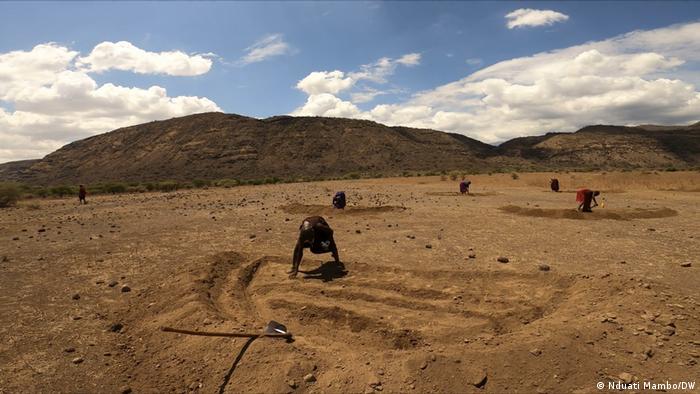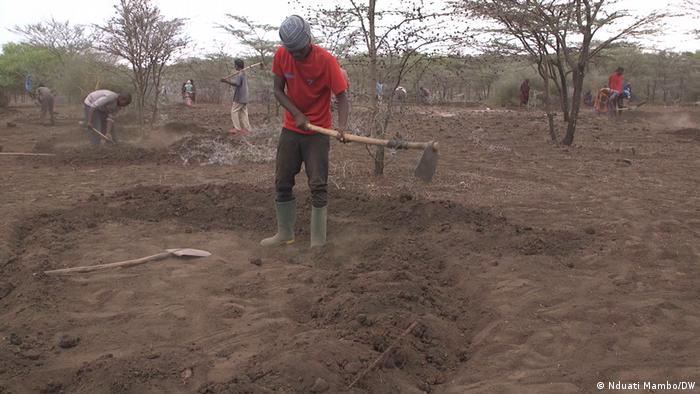Village communities in Kenya and Tanzania are using a surprisingly simple, low-tech method to fight desertification. They dig semicircular depressions into the earth, so that it when it rains, water collects instead of evaporating quickly from the parched ground.
Grass seed are soThese “bunds” can be woven into. As they germinate, they bind the soil together preventing erosion and keeping it cool. In this way, more greenery is able to take root in the surrounding earth.
This technique was invented by Dutch-Kenyan NGO Justdiggit, which has been working on the project with communities in Kenya and Tanzania since 2013. Since then, more than 200,000 “bunds” have been dug.
Justdiggit also helps communities build grass seed banks and supports reforesting, with 9 million trees planted using the Farmer Managed Natural Regeneration method. Above all, the organization focuses on on-site educational work, with the conviction that drought and desertification in the region can only be stopped if enough people learn these simple techniques and dig in.
Project goal: You can revegetate degraded land. Justdiggit aims to increase pasture and arable land for locals in the Arusha region of Tanzania. Together with reforestation, this also cools the microclimate, helping to prevent desertification. Reforestation can also help to bind carbon dioxide and combat climate change.
Project duration:The project was initiated in 2013 and aims at restoring 130 million hectares degraded soil by 2030.
Budget: Donations and partnerships with internationally-active companies finance the project. Private donors finance individual bunds. Companies promise to continue to provide funding for individual bunds for five years. 10 million trees in Tanzania.
Project partners:Non-governmental organizations are also welcome. Justdiggit, theLead Foundation and the Germany’s The Food Family foundation are also participating in the project in Arusha.
Joachim Eggers’ film Thuku Kariuki



